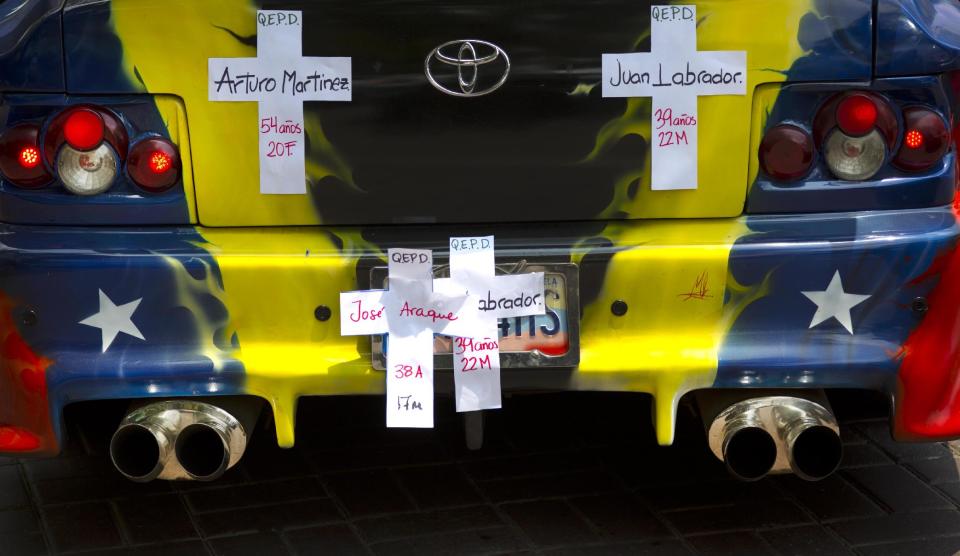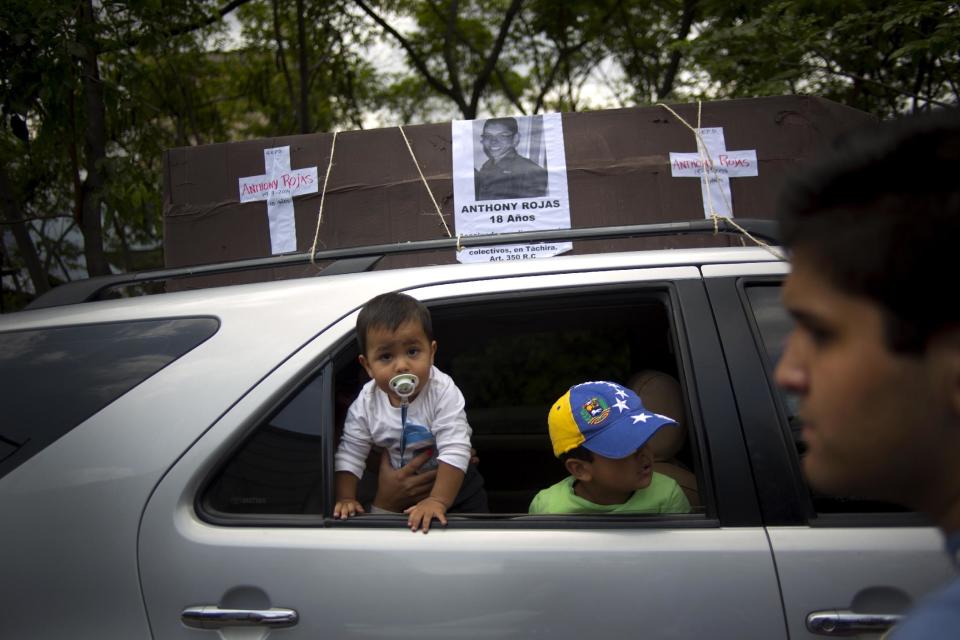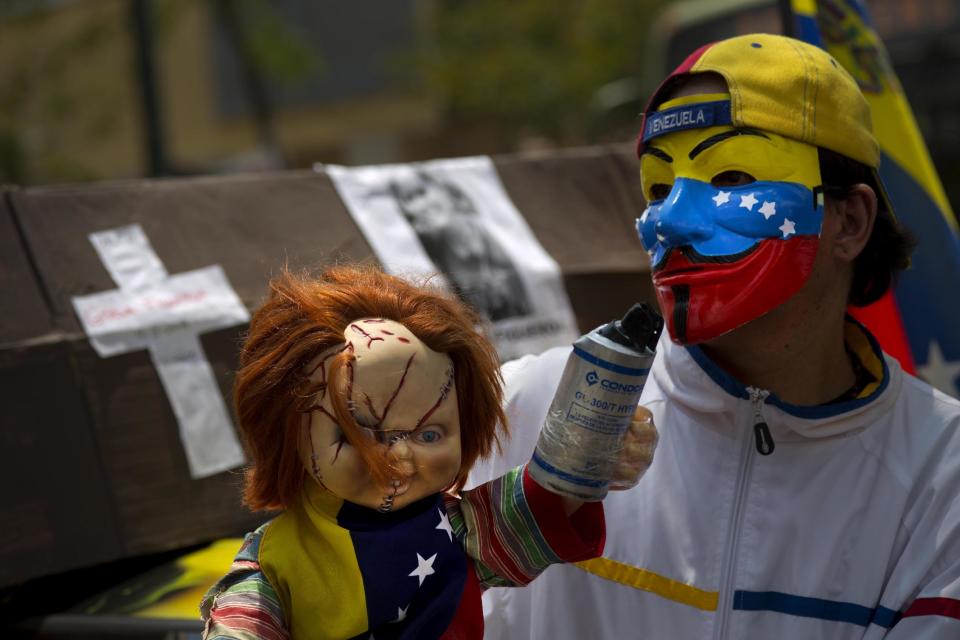Venezuela opposition resumes talks with government
CARACAS, Venezuela (AP) — Venezuela's opposition resumed negotiations with the government Tuesday amid rising doubts that the talks will produce a long-sought political opening.
The closed-door meeting hosted by Vice President Jorge Arreaza was aimed at setting an agenda and framework for future talks. It followed a six-hour marathon of speeches last week that drew record TV ratings as Venezuelans tuned in past midnight to watch the two sides air their differences in a rare display of civility after 15 years of rancorous polarization.
The opposition wants President Nicolas Maduro's government to free jailed opponents and create an independent truth commission to determine responsibility for 41 deaths tied to protests that have rocked the nation since February. It's also urging him to disarm pro-government groups known as "colectivos" and give critics a bigger say in the running of institutions that the government dominates, such as the Supreme Court and National Electoral Council.
Despite Maduro's more conciliatory tone and broad support for dialogue, hopes for a breakthrough are slim. The government has shown no sign of making any broad concessions, and more radical elements of the opposition, including students, are boycotting the talks, calling them a political stunt by Maduro to deflect foreign criticism of his handling of the crisis while keeping a boot on the necks of protesters.
"No negotiations or pacts," Maduro declared at last week's meeting, which took place under the supervision of three South American nations and a Vatican envoy. "What's happening here is a debate, a dialogue."
Instead of ceding more political space, some observers say Maduro, who on Monday marked a year in office, may try to quietly orchestrate an economic opening to rebuild support battered by widespread frustration with long lines for scarce goods and galloping 57 percent inflation.
They point to the rolling out of a new foreign currency exchange mechanism that could increase the private sector's access to dollars as a move toward more pragmatic policymaking. The government has also allowed struggling businesses to quietly raise price caps on basic goods.
"The government seems to be trying to undertake adjustments without paying the associated political costs, which is difficult to do in the current political climate and could undermine their commitment to these measures," Eurasia Group analyst Risa Grais-Targow wrote in a report Tuesday. "As a result, the economic outlook will likely remain challenging, which implies that the potential for discontent to rise will remain high."







